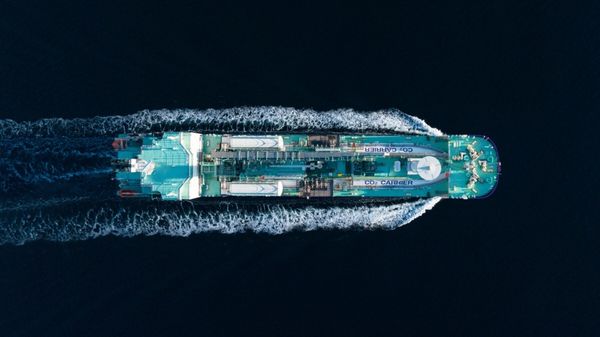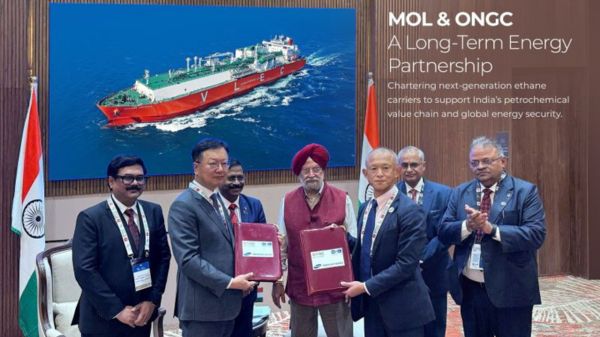
The EU's Council and the Parliament negotiators have reached a provisional agreement to raise the share of renewable energy in the transport industry by 2030.
The revised Renewable Energy Directive (RED) on transport gives the possibility for member states to choose between:
In terms of the share of renewable energies supplied to the transport sector, the agreement sets a binding combined sub-target of 5.5%.
Big picture: In its overall target — covering transport; industry; buildings, heating and cooling; and bioenergy — EU negotiators agreed to raise the share of renewable energy in energy consumption to 42.5% by 2030, with an additional 2.5% indicative top up that would allow the figure to reach 45%.
What they said: Campaign group Transport & Environment (T&E) was critical of the EU's decision not to phase out soy and palm oil biofuels, which it described as "a disaster for forests" as the cap for crop-based biofuels will remain at 2020 levels and their use optional for member states.
Next steps: The agreement will first need be submitted to the EU member states' representatives in the Committee of Permanent Representatives in the Council and then in the Parliament for approval.

|
Maersk takes delivery of first methanol-capable vessel in 9,000-teu series
Tangier Maersk is the first of six mid-size container ships with methanol-capable dual-fuel engines. |
|
|
|
||

|
IBIA to run surveyor training course for mass flow meter-equipped bunkering in Rotterdam
One-day course scheduled for 19 February aims to prepare professionals for MFM-equipped bunkering operations. |
|
|
|
||

|
MOL secures two 12,000-cbm CO2 carriers for Northern Lights expansion
Japanese shipowner to deliver vessels in 2028 for cross-border carbon transport and storage project. |
|
|
|
||

|
MOL and ONGC sign 15-year charter deal for two ethane carriers
Japanese shipowner expands fleet to 16 vessels with newbuildings scheduled for delivery in 2028. |
|
|
|
||

|
Dual-fuel container ship and vehicle carrier fleet reaches 400 vessels
World Shipping Council reports 83% increase in operational dual-fuel vessels during 2025. |
|
|
|
||

|
Lloyd’s Register publishes first guidance notes for onboard hydrogen generation systems
Classification society addresses regulatory gap as shipowners explore producing hydrogen from alternative fuels onboard. |
|
|
|
||

|
Rotterdam bunker industry faces upheaval as new regulations drive up costs and shift volumes
Red III compliance costs and a mass flow meter mandate are creating operational challenges across the ARA region. |
|
|
|
||

|
VPS appoints Neil Chapman as managing director for the Americas
Maritime services company names industry veteran to lead regional operations and client partnerships. |
|
|
|
||

|
Maritime industry shifts towards LNG as alternative fuel enthusiasm stalls
Geopolitical concerns drive shipping leaders to prioritise established fuels over newer alternatives, survey finds. |
|
|
|
||

|
OceanScore reaches $5m annual recurring revenue as emissions compliance demand grows
Hamburg-based firm supports compliance workflows for more than 2,500 vessels as regulations enter operational phases. |
|
|
|
||
| EU agrees new rules on cleaner marine fuels [News & Insights] |
| 25 years of air pollution regulations [News & Insights] |
| Med ECA approved; zero 2050 target gains traction [News & Insights] |